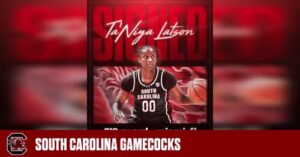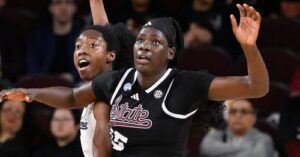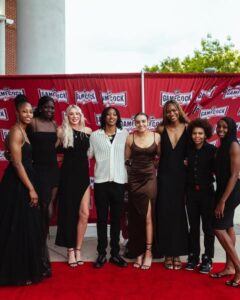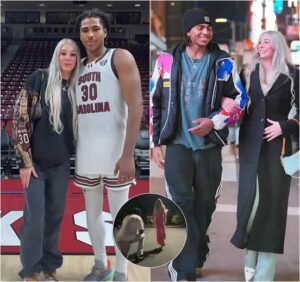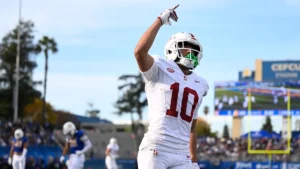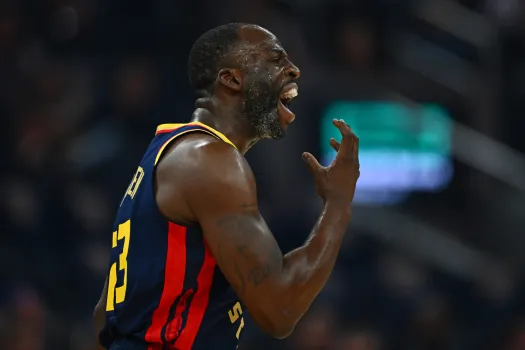
Draymond Green is undeniably one of the most impactful defenders in the history of the NBA. Known for his versatility, intelligence, and leadership on the court, Green has been the backbone of the Golden State Warriors’ defense for nearly a decade. His defensive prowess has earned him multiple All-Defensive selections and a key role in the Warriors’ championship runs. However, whether or not he should win the NBA Defensive Player of the Year (DPOY) award is a nuanced discussion.
This essay will explore the arguments for and against Draymond Green winning the DPOY award, delving into his impact on defense, the evolving criteria for the award, and the competition he faces in the league.
Arguments for Draymond Green Winning the DPOY Award
1. Defensive Versatility
Draymond Green’s greatest strength lies in his versatility. He can guard multiple positions, from point guards to centers, and his defensive prowess is not limited to one-on-one matchups but extends to his ability to orchestrate the entire defense. Green’s ability to switch seamlessly between different roles—whether it’s guarding on the ball, as a help defender, or defending in the post—is unparalleled. In an era where switch-heavy defenses have become a trend, Green is a perfect embodiment of this philosophy.
He is often tasked with guarding the opposing team’s best player, regardless of position, and his ability to do so effectively has been a hallmark of his career. Whether it’s defending perimeter shooters or dominating the paint, Green is a matchup nightmare for any offensive player. His quickness, anticipation, and basketball IQ allow him to disrupt offensive flow in ways that are difficult to quantify through traditional stats. His defensive impact goes beyond the box score, as his ability to read the game and communicate with his teammates helps to organize the Warriors’ defense.
2. Defensive IQ and Communication
Green’s basketball IQ is perhaps his most underappreciated asset. He is constantly analyzing the floor, anticipating plays before they happen, and directing his teammates to the right positions. His defensive communication is key to the Warriors’ success on that end of the floor. He’s essentially the quarterback of the defense, directing traffic, calling out screens, and ensuring everyone is on the same page.
This on-court leadership has been instrumental in the Warriors’ defensive schemes, especially during their championship runs. His understanding of defensive concepts, rotations, and positioning makes him more than just a shot-blocker or a lockdown defender. He is the catalyst for much of the Warriors’ defensive success, organizing and executing the team’s game plan with precision.
3. Impact on the Warriors’ Defense
The Warriors’ defense revolves around Green, and the numbers back up his importance. According to advanced metrics like Defensive Box Plus-Minus (DBPM) and Defensive Rating, Green consistently ranks among the league’s best defenders. The Warriors’ defense tends to improve significantly when Green is on the floor, highlighting his importance in both individual and team defensive schemes.
Green’s presence elevates the defense of his teammates as well. His ability to read the game allows him to cover up for teammates’ mistakes, whether it’s providing timely help defense or contesting shots at the rim. This makes him more valuable than any other traditional defensive player who might focus solely on individual matchups.
Additionally, the Warriors are often one of the top teams in defensive efficiency, and while their defense is a team effort, Green is undoubtedly the centerpiece. Without him, the Warriors’ defense would lose its cohesiveness, making him not just a good defender but one who significantly impacts his team’s overall defensive performance.
4. Defensive Statistics
Although Green is not a traditional shot-blocker or elite rebounder compared to some of his peers, his defensive statistics are still impressive. He is a consistent leader in steals, averaging over 1.5 steals per game in multiple seasons. His ability to disrupt passing lanes and force turnovers is another reason why he is considered one of the best defenders in the league. Green is also adept at defending the pick-and-roll, an essential skill in today’s NBA, where so much offense is built around that play.
Moreover, Green’s defensive presence has led to numerous game-changing plays. Whether it’s a clutch steal, a key blocked shot, or a perfectly timed defensive rotation, Green’s ability to make impactful plays in high-leverage moments further solidifies his case for DPOY honors.
Arguments Against Draymond Green Winning the DPOY Award
1. Decline in Defensive Statistics
While Draymond Green remains an elite defender, some critics argue that his individual defensive statistics have slightly declined in recent years. Historically, Green has been known for his ability to accumulate steals and blocks, but in recent seasons, his numbers in both categories have dropped. For instance, his blocks per game have decreased, and while his steal rate is still solid, it is not at the level it once was.
Furthermore, Green’s defensive efficiency has not been as dominant as it was during the peak years of the Warriors’ dynasty. As the NBA has evolved, the competition for the DPOY award has become fiercer, with other players emerging as elite defenders with superior individual numbers.
2. Competition from Other Elite Defenders
Draymond Green faces stiff competition for the DPOY award from a host of other elite defenders. Players like Jaren Jackson Jr., Brook Lopez, and Bam Adebayo have all made strong cases in recent seasons due to their individual defensive statistics and the defensive success of their respective teams.
Jaren Jackson Jr., for example, won the 2023 DPOY award, and his ability to dominate as a shot-blocker, combined with his defensive impact on the Memphis Grizzlies, makes him a strong candidate for future awards. Jackson’s ability to change the course of games with his rim protection and ability to guard multiple positions challenges Green’s claim to the award. Similarly, players like Bam Adebayo have been standout defenders for the Miami Heat, with Adebayo known for his versatility and ability to guard all five positions.
Brook Lopez, who has been a defensive anchor for the Milwaukee Bucks, has also made a case for being a top defensive player in the league. His elite shot-blocking ability and ability to defend the rim at an elite level have earned him recognition, especially in seasons where the Bucks’ defense has ranked among the best in the league.
These players, along with others, have become formidable challengers to Green’s claim to the DPOY trophy. While Green’s overall impact on the game is undeniable, the statistical achievements of these defenders might give them an edge in the eyes of voters who value traditional metrics.
3. Age and Physical Decline
Draymond Green, like all players, is not immune to the effects of aging. Although he is still a top-tier defender, there have been signs that his physical abilities are starting to decline. Green, who is now in his early 30s, has lost a step in terms of lateral quickness and vertical leap. While his basketball IQ and leadership remain exceptional, his ability to stay in front of quicker players or contest shots at the rim with the same ferocity as in his prime years has diminished.
This decline, while not drastic, does affect his defensive effectiveness, especially in a league that increasingly demands athleticism and speed from its defenders. As a result, some may argue that other defenders, who are in their prime years or have a greater physical presence, should be rewarded with the DPOY award over Green.
4. Team Success and Defensive Context
Finally, it’s important to consider the context of team success. While the Warriors’ defense is good, they have not been as dominant on the defensive end as some of the other top teams in the league. In years past, the Warriors’ defensive efficiency ranked among the best, but as their roster has aged and they’ve faced injuries, their defense has been less consistent.
Other teams with elite defenses, like the Milwaukee Bucks (with Lopez), Memphis Grizzlies (with Jackson Jr.), and Miami Heat (with Adebayo), have shown sustained defensive excellence, leading to stronger individual cases for their players. Green’s defense may not be enough to carry the Warriors to the top of the defensive rankings, which could hurt his chances of winning the DPOY.
Draymond Green has been one of the most important defensive players of his generation, and his case for the NBA Defensive Player of the Year award is compelling. His defensive versatility, IQ, and leadership are crucial components of the Warriors’ defensive success. He can guard multiple positions, orchestrate the defense, and make timely, impactful plays that are hard to measure with statistics alone.
However, his statistical decline in certain areas, combined with fierce competition from other elite defenders in the league, makes the decision less straightforward. Other players like Jaren Jackson Jr., Bam Adebayo, and Brook Lopez have become formidable challengers, each with their own unique strengths and contributions to their teams’ defensive success.
Ultimately, whether or not Green should win the DPOY award depends on how voters weigh the value of his leadership and versatility against the more traditional metrics that other candidates excel in. While Green’s impact on defense is undeniable, the evolving landscape of the NBA, combined with the emergence of other elite defenders, presents a more complicated question than it might have been in years past. Regardless of the outcome, Draymond Green’s legacy as one of the greatest defenders in NBA history is secure.
